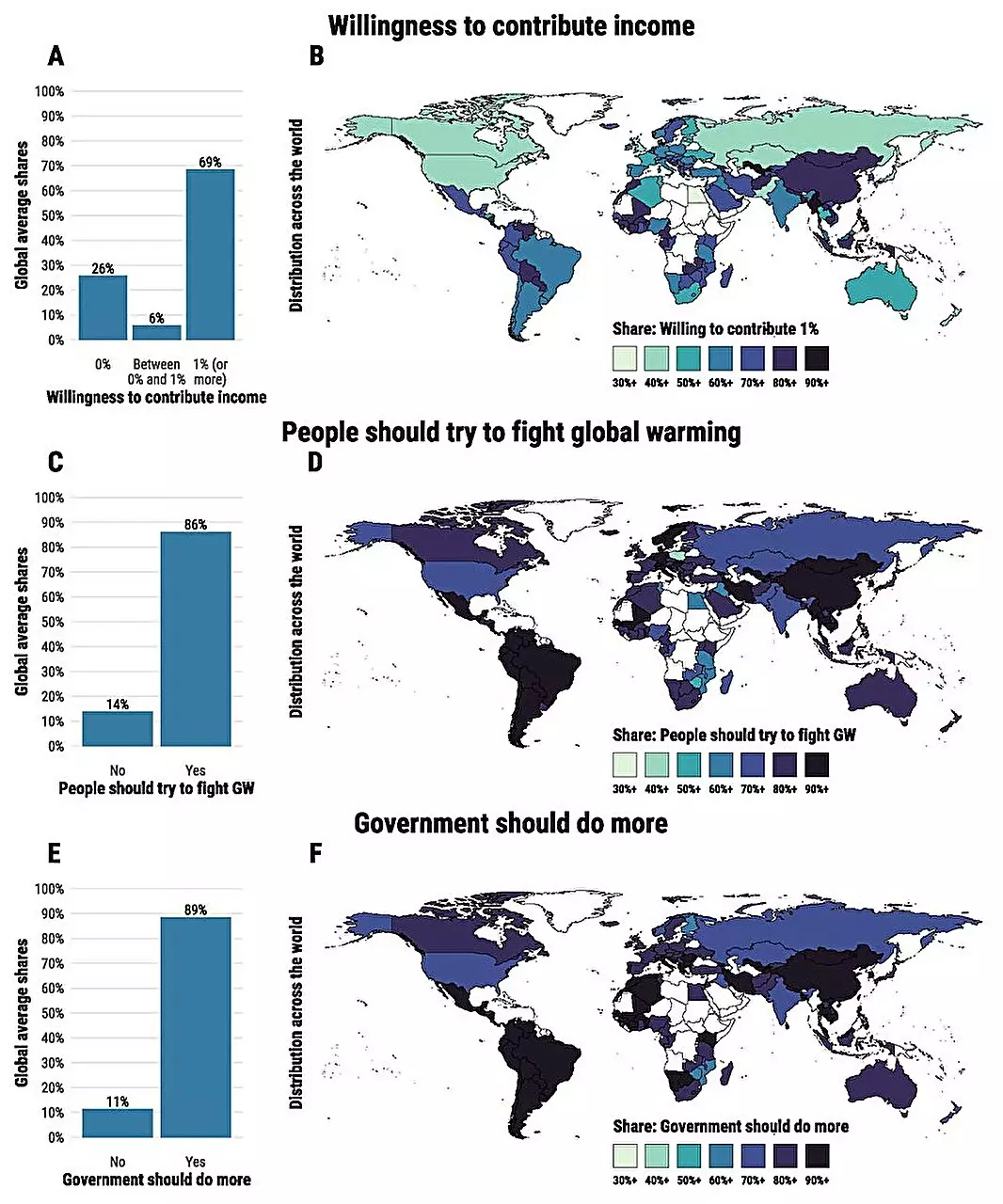A recent study conducted by behavioral researchers at the University of Bonn, the Leibniz Institute for Financial Research SAFE in Frankfurt, and the University of Copenhagen has shed light on the global population’s stance on climate action. The findings, published in the journal Nature Climate Change, highlight that a significant majority of people worldwide are not only supportive of climate action but are also willing to make personal sacrifices to combat climate change.
The study, which involved approximately 130,000 individuals across 125 countries, reveals that an astonishing 69% of the world’s population is willing to contribute 1% of their personal income towards the fight against climate change. This willingness to financially contribute showcases a significant commitment to climate action. Moreover, a staggering 86% of respondents endorse pro-climate social norms, demonstrating a shared belief in the importance of addressing global warming. Additionally, 89% of participants call for increased political action to tackle climate change.
Notably, the study highlights that countries heavily impacted by global warming exhibit a higher willingness to fight climate change. On the other hand, countries with high GDP per capita demonstrate a lower willingness compared to other nations. These findings emphasize the interconnectedness between climate change and socio-economic factors, highlighting the need for targeted efforts in wealthier nations to bridge the gap in climate action support.
Misconceptions and the Importance of Effective Communication
While the research reveals widespread support for climate action, it also uncovers a significant misconception among individuals regarding the willingness of their fellow citizens to engage in climate change mitigation. The study exposes a systematic underestimation of public support for climate action in every single country surveyed. Globally, the actual proportion of people willing to contribute 1% of their income to climate action (69%) is underestimated by a staggering 26 percentage points.
This misconception regarding public support can act as a substantial barrier to effective climate action. Individuals who underestimate the level of public support for combating climate change often exhibit less willingness to take action themselves. Therefore, it becomes crucial to address these misconceptions and communicate the overwhelming support for climate action worldwide.
To enhance individual willingness to fight climate change, the researchers recommend adopting an effective communication strategy that emphasizes the majority’s support for climate action. Instead of amplifying the concerns of a vocal minority who oppose climate action, it is vital to convey the message that the vast majority of people worldwide are ready to take action and expect their governments to follow suit. By fostering a sense of optimism and collective commitment, this approach can motivate individuals to actively participate in climate change mitigation efforts.
The researchers highlight that current pessimism surrounding climate action is discouraging and paralyzing. However, the study’s findings offer a glimmer of hope by suggesting that cultivating optimism and highlighting public support for climate action can spark a positive dynamic. By reframing the narrative around climate change and showcasing the worldwide consensus on the need for action, it becomes possible to overcome inertia and galvanize individual and collective efforts to combat climate change.
Methodology and Representativeness
The survey was conducted as part of the 2021/2022 Gallup World Poll, encompassing countries that account for 96% of global greenhouse gas emissions, 96% of global GDP, and 92% of the world’s population. The researchers ensured representativeness by randomly selecting country samples from the resident population aged 15 years and older. Telephone interviews were conducted in high-income countries, while in-person interviews were conducted in low-income countries. The overall sample size included 129,902 individuals, with most country samples consisting of approximately 1,000 respondents. To ensure comparability across countries and cultures, the survey underwent professional translation and rigorous testing.
The recent study provides an encouraging glimpse into global attitudes towards climate action. The overwhelming majority of people around the world express support for climate action, with a significant willingness to contribute financially and a demand for increased political action. However, misconceptions about public support pose a challenge that must be addressed through effective communication strategies. By emphasizing the shared commitment and mobilizing collective action, it is possible to unleash a positive dynamic and accelerate progress in the fight against climate change.


Leave a Reply